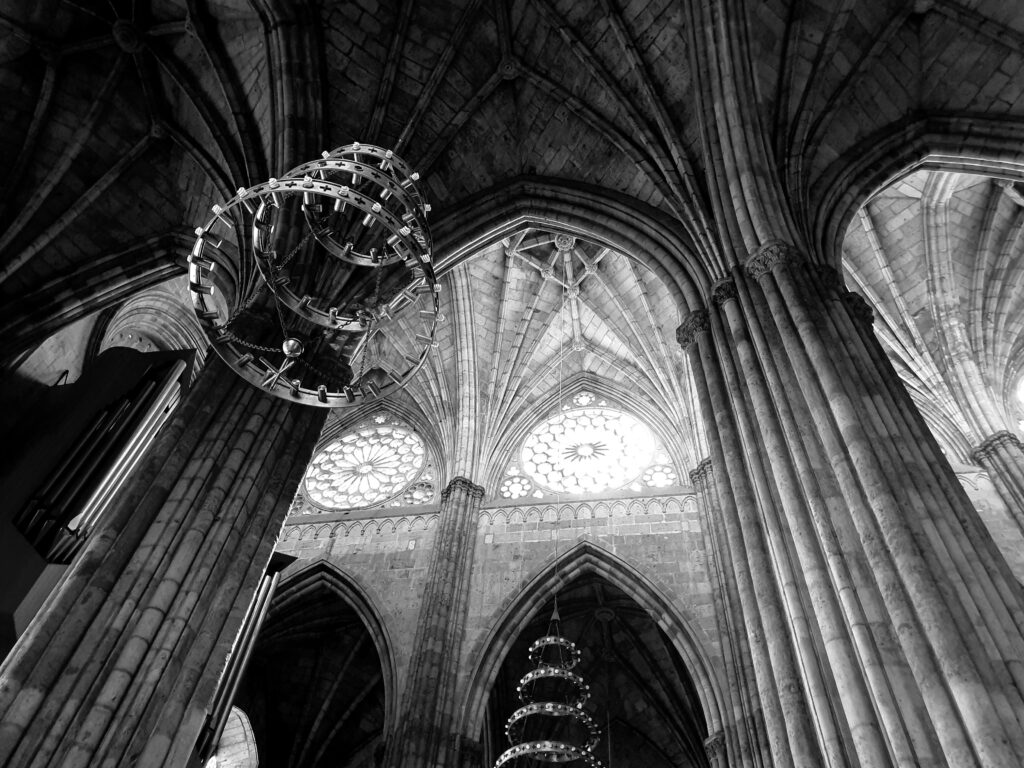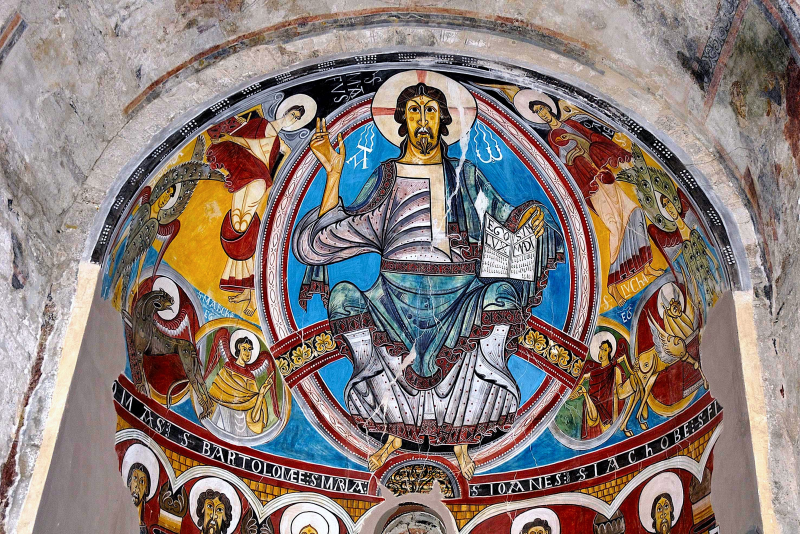The Holiness and Legacy of Francis, in Memoriam
A grateful review of the life, teachings, and witness of Pope Francis, whose legacy of holiness will mark generations

In recent days, following the death of our beloved Pope Francis, many publications, analyses, and assessments have been published regarding his Petrine ministry, not always true or accurate; sometimes tinged with ignorance, ideologizing, etc. In this article, we will attempt to present and delve deeper into the reality of Francis, his teachings, his work, his witness, and legacy, gratefully and joyfully remembering his life and the legacy he leaves us.
We objectively believe that if one word can define and encapsulate Francis’s legacy, it would be holiness, thus following the spirit and letter of the Second Vatican Council, which, like all Popes, Francis has sought to transmit and actualize. Truly, there is nothing more important in faith and the Church than the universal vocation to holiness, to which we are all called by the gift (Grace) of God the Father, revealed and bestowed in Jesus Christ with his Spirit. It is to be the Church as the faithful and holy people of God, a baptismal and Eucharistic community on a synodal journey, journeying together responsibly in history, seeking the Kingdom of God that gives us his liberating and integral salvation.
In Francis, continuing the tradition of faith and the Church with his Popes, this call to embrace the joy, beauty, and truth of the Gospel with its Kerygma, with the Grace of God’s love, manifested in the very heart of the Crucified and Risen Jesus and of our faith, is constant. This gift of God in Christ and his Kingdom of love, in fact, leads us to missionary and pastoral conversion in the service of this Kingdom of God that gives us life, peace, mercy, and justice that liberates us from evil, from all sin and injustice, and culminates in full, eternal life, in the new earth and the new heaven. Holiness is embedded in this love and faithful communion with God, with the Church, and with others, preferably with the poor of the earth.
Holiness is realized, then, in this following of Jesus, from his Spirit, the Uncreated Grace, as his disciples and missionaries, as a community and church, reaching out to the peripheries, announcing, celebrating, and serving the Kingdom of God who is Love. Therefore, faith, together with mission, must be understood and lived holily, with that inseparable unity of: holiness and activism for the Kingdom of God with its justice, love of God and universal charity—love for all humanity with the option for the poor, prayer, and moral commitment for the most universal common good; contemplation and nonviolent struggle (action) for justice, celebration of faith through the sacraments, and the social and integral advancement of all peoples, eschatology and integral human development, myth and politics, merciful forgiveness and truth, etc.
And holiness is realized in this fullness of love, a gift from God, which leads to the communion of faith, life, affections, goods, and action for justice with the poor as protagonists of their integral development and advancement. Following Jesus and his good news of the Kingdom with its Beatitudes, holiness is lived in this humility, dedication, and spiritual (evangelical) poverty, as a poor church with the poor, which entails sharing our existence, goods, and commitment to justice with the impoverished; and thus, freeing ourselves from sin, selfishness, and its idols of wealth—being rich—power and violence. It is the constitutive social and public dimension of grace with its theological life of faith, hope, and love. That is, political charity that seeks the most universal common good, justice for the poor, and the civilization of love, which addresses the causes of problems and injustices, transforming personal and structural sin, the structures of sin and injustice.
This political charity is more characteristic of the laity, which constitutes the baptismal foundation of the Church, the holy and faithful people of God, whose specific vocation, due to its secular nature, is the most direct and immediate management and transformation of the world. The laity develop their holiness in this responsibility and commitment to transform social and historical realities such as the family, culture, economy, and politics, so that they may be adjusted to the Kingdom of God. For this purpose, this spirituality and mission of the laity are guided by the Moral and Social Doctrine of the Church (MSD), which is consubstantial with anthropology, faith, and the evangelizing mission of the Church.
Faith and the Church, therefore, live from this merciful love of God, with its Samaritan spirituality and ethic, which is realized in this cordial, affectionate, and supportive brotherhood; which is realized in this compassionate mercy, taking on the suffering, evil, and injustice endured by the victims, the crucified, and the poor of history. All of this shapes the identity of faith and of the children of God. Hence, faith and the Church, with their ongoing missionary and pastoral conversion, must exercise discernment in this human, social, and historical reality, scrutinizing the signs of the times. That is, wherever they find all these seeds and realities of the Spirit, promoting faith, spirituality, culture and morality, life, dignity, peace, and justice for the poor. Especially, all that popular religiosity and spirituality of the holy, faithful People of God, with their spiritual, cultural, ethical, and social traditions. Here, it is worth highlighting the essential dialogue and encounter between faith, reason, and science; between diverse cultures (interculturalism), religions, and churches (global ecumenism); between civil society, social organizations, and popular, social, and historical movements of workers, women, indigenous people, youth and children, migrants, environmentalists, and peaceful activists, all of whom seek another possible and necessary world as God intends. These popular movements embrace the dreams of victims and the poor as transformative subjects of history, seeking human and social rights such as the three Ts: land, shelter, and work, and the revolution of tenderness.
Along these lines, the Social and Cultural Rights (DSI), as intrinsic to faith and the Church, transmits an integral ecology that hears the cry of the poor and the cry of the earth, with its global bioethics that cares for life in all its phases, dimensions, and aspects. Human ecology protects life from its beginning with conception until natural death, as science shows us, and the family with that faithful love (sexuality-true affection) of man for woman and fruitful love for children, with solidarity and the common good. A missionary, evangelizing, supportive, militant, and poor family that peacefully fights for justice for impoverished families and the poor of the earth. Social ecology promotes the principles of the universal destiny of goods, which takes priority over property, and of dignified (decent) work that comes before capital, with its rights, such as a fair wage; with an ethical economy and business at the service of life, the needs, capabilities, and integral human development of all peoples.
Environmental ecology with respect and care for nature, God’s creation, for that common home that is our planet Earth, the work of the Creator, where we glimpse the existence, intelligence, and creative beauty of God himself. As a profound synthesis, the spiritual ecology that prays, that contemplates all the beauty of the liturgy and the cosmos, created by God, experiences this entire theological life of faith, hope, and charity, with its inherent political dimension, of civil and social love. Integral spiritual ecology experiences that everything is connected, with that loving and inseparable unity of God with humanity and nature-creation. The entire universe-cosmos lives in this mutual interconnection from the God of Life.
In conclusion, Francis has communicated and bequeathed to us God’s Plan that desires life, meaning, and happiness for human existence. That fulfillment of each person that is consummated in the joy and beauty of faith, with its transcendence, its eternal life, its truth and love, which, in the Passion of Jesus Christ Crucified and Risen, definitively conquers all evil, sin, death, and injustice. Pope Francis has thus presented us with various saints and witnesses of faith as models of this joyful, happy, and fulfilled life in God, of authentic ethical, spiritual, and integral humanism.
Related

In Defense of the Church
José María Montiu de Nuix
02 May, 2025
5 min

Jesus Christ, Yesterday and Today
Jesús Ortiz López
02 May, 2025
5 min

“You don’t take the relationship seriously…”
José María Contreras
02 May, 2025
2 min

What happens now with Pope Francis’s “unfinished business”?
Javier Ferrer García
01 May, 2025
2 min
 (EN)
(EN)
 (ES)
(ES)
 (IT)
(IT)

